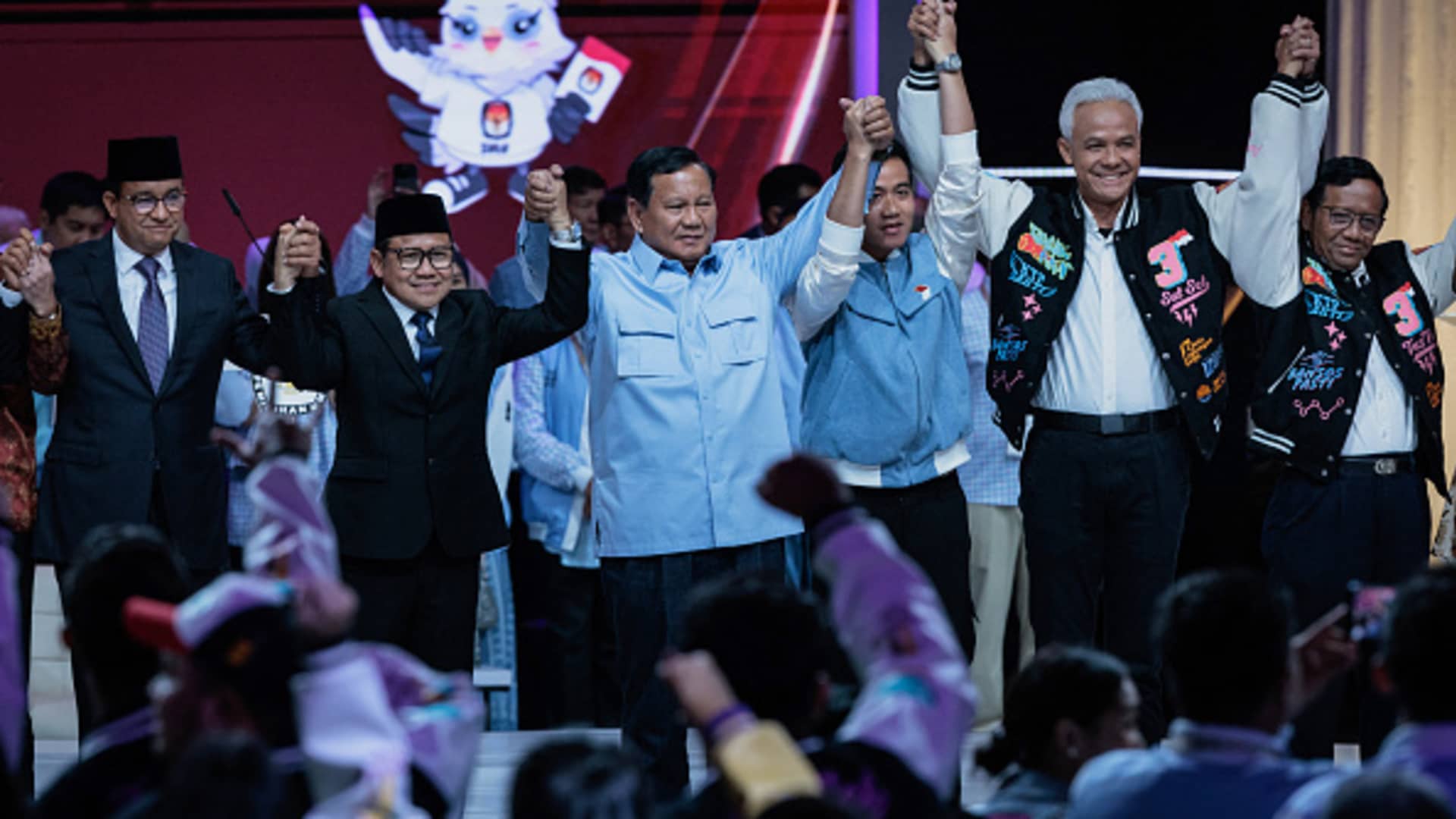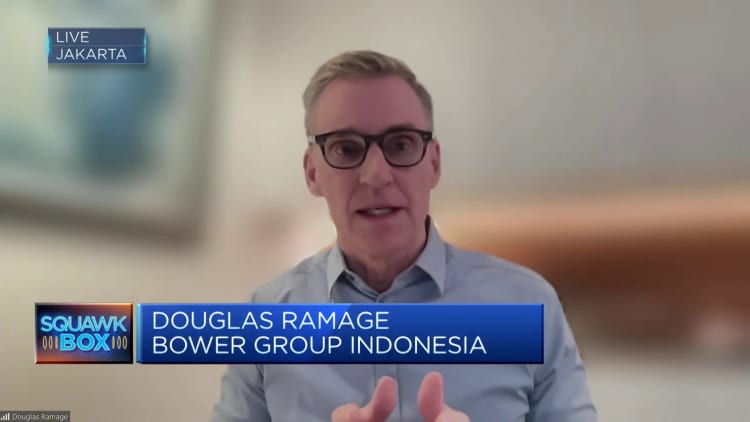Millions in Indonesia head to the polls to elect Jokowi’s presidential successor


Presidential candidate and former Jakarta governor Anies Baswedan, vice presidential candidate Muhaimin Iskandar, presidential candidate and Indonesia’s Defence Minister Prabowo Subianto, vice presidential candidate Gibran Rakabuming Raka, presidential candidate and former Central Java governor Ganjar Pranowo and vice presidential candidate Mahfud MD (from left to right) react on the stage during the last presidential election debate at the Jakarta Convention Center in Jakarta on February 4, 2024.
Yasuyoshi Chiba | AFP | Getty Images
More than 200 million voters in Indonesia are heading to more than 800,000 polling stations in the world’s third-largest democracy on Wednesday to elect President Joko Widodo’s successor, a new national House of Representatives and various local legislators.
Defense Minister Prabowo Subianto, 72, is the frontrunner in what could be the former army general’s last attempt at seeking the highest political office in the world’s most populous Muslim country, according to various opinion polls ahead of the Feb. 14 vote. Widodo, also popularly known as Jokowi, beat Prabowo in the last two presidential elections.
The outcome of these elections could go some way in affecting Indonesia’s nascent democracy, while determining if Southeast Asia’s largest economy can attain developed status by 2045. It’s also unclear if the new president would derail the
Prabowo was once an Indonesian special forces commander. He was dishonorably discharged from the military in 1998 after troops under his command allegedly captured and tortured democracy activists opposed to the dictatorship of President Suharto, his father-in-law, ahead of riots that preceded the start of democratic reforms in the world’s fourth most populous nation.
Prabowo has also been accused of leading a massacre of hundreds in East Timor in 1983. Decades later, he has been rebranded as a “cute” grandpa as his campaign features his awkward dance moves on social media, endearing him to young voters.
More than half of Indonesia’s electorate was born after 1980. The minimum voting age is 17.
“There’s a bona fide concern he will roll back some of the democratic norms that Indonesia has worked on since Suharto,” Borsuk added.
Jokowi’s economic legacy
Despite previous animosity between the two, Prabowo has pledged to continue with Jokowi’s popular economic reform agenda.
“During his decade in power Jokowi has introduced several important reforms that have boosted the economy’s long-run prospects, including a radical shake-up of the country’s labor market and increased spending on infrastructure,” Gareth Leather, senior Asia economist at Capital Economics, wrote in a note dated Feb. 7.
The manner by which Jokowi’s son was nominated as Prabowo’s vice-presidential running mate has attracted criticism of nepotism, but seen as Jokowi’s attempt to ensure some continuity of his policies.

“Regardless of who wins, the new government will face medium-term structural constraints including flagging revenue ratios, spending inefficiencies (still-high subsidies vs. productive infrastructure spending), and over-reliance on commodities,” Goldman Sachs economists led by Rina Jio wrote in a Dec. 14 note.
There will likely be more policy uncertainty in 2025 after the new administration is inaugurated Oct. 1 this year, they added.
Goldman Sachs economists said these may include the potential discontinuation of the new capital city project, potential attempts to loosen the fiscal deficit cap — currently w pegged at 3% of GDP — and a potential lower rate of inflation, should the new government decide to scrap the proposed 1 percentage point increase in value added tax that’s scheduled to start Jan. 1, 2025.
“For now, given that the candidates seemingly run on similar economic platforms, we think the very near-term economic and market implications are limited,” they said.
— CNBC’s Celestine Francis contributed to this story.
Correction: This story was updated to correct the spelling of Ganjar Pranowo and Prabowo Subianto’s names.









